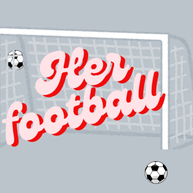Arsenal women have had a rocky start to the season. In nine games, they have won only four and are currently 10th in the Champions League table.
This comes six months after they lifted the women’s Champions League trophy over Barcelona.
Last summer, following their Champions League win, there was considerable financial investment in the transfer window, for example, a record-breaking one million pound signing of Olivia Smith, but the outcomes of the pitch imply a negative return on investment
According to The Athletic and sources within the club, this season's disjointed performance has shed light on broader cultural and structural issues within Arsenal's women’s setup.
It has been seen that the Champions League triumph has allowed underlying problems within the internal culture to go unaddressed.
The Athletic reported that there has been unrest in the dressing room for years, with a small group of players wielding significant influence.
One of the Athletics' sources indicated that they had never known an environment that is “so competitive and yet so disrespectful.”
This is not a question of the clubs' commitment to the women’s team, but more about the team's culture and how that works within the clubs' ecosystem.
According to a survey completed by the first-team players early in the season, many players responded negatively. This could be seen as reinforcing the sense that the squad culture needs to be addressed.
For example, in April of 2025, Beth Mead said this: "We unanimously decided to keep the Arsenal shorts white. I think a lot of us are comfortable in the situation we are in - there were a couple of girls who wanted to change, but obviously, we went with the team as a whole. We were given the really nice option."
Clearly, players were uncomfortable with white shorts, but that was not taken into consideration, which could have caused internal issues.
Numerous people, reportedly close to the team, say the dressing room has been splintered for many years and that there is a lack of unity and increased tension among players.
Arsenal are currently fourth in the WSL table, eight points adrift of leader Manchester City.
Their goalless draw with Spurs in mid-November marked the most points dropped in their first nine league matches since 2014.
A key issue is the lack of essential players, leaders in Leah Williamson and Kim Little, the latter missing crucial matches against Chelsea and Bayern Munich, which they lost a 2-0 lead to end up losing 3-2.
While the 2-1 win against Real Madrid reminded fans of their quality, it seems they can only come back into a game when they are trailing and do best in knockout, dramatic situations.
Even within the design of the dressing room, the seating plan could cause division as it's ordered according to when a player joined the club, a show of hierarchy.
The change in player power dynamics could be linked to players' newfound fame. Still, The Athletic's sources say the growing cultural sway of players has not been appropriately addressed for many years.
They even went on to say that within that dressing room, it has become difficult for some players to feel comfortable.
This is not anything new for the club under Jonas Eidevall. There was less and less unity in the dressing room at the end of his tenure in October 2024, which was a significant reason for the team's below-par performances, as morale had declined, leading to his departure.
At the time of his exit, one agent described the team as a “boat driven by itself.” Some Athletic sources, while not addressing who is responsible for addressing such issues within the team, have made the situation worse.
Some argue that Renee Seeger, while a highly respected coach with strong abilities, lacks the experience in player management after the big step up from assistant to manager.
There has been considerable selection action, especially last season and pre-season, when players had the impression they would be granted more games. In contrast, others who have worked hard in training have not been rewarded with game time.
One agent said that “some players are untouchable.”
While this is not new or unique to Arsenal, the Athletic sources said this points to a lack of cohesive strategy and accountability that has created a disjointed dynamic.
Arsenal have the highest average starting XI age in the WSL (28 years and 55 days) according to Opta, around two years older than Chelsea (26 years and 81 days), Manchester United (26 years and 86 days) and Manchester City (26 years and 119 days).
The extent of the issues goes beyond the senior side. The Athletic said the family of one young player who has since left the club criticised the individual development plan and dialogue around the pathway and the academy.
Their sources on the failure to develop the squads' following chapters fall on Slegers and Clare Wheatley, the club's director of women’s football for a decade. The latter has been described as difficult to contact and as distant from day-to-day dynamics.


Add comment
Comments